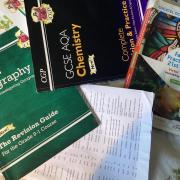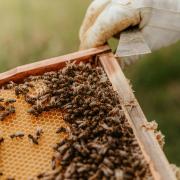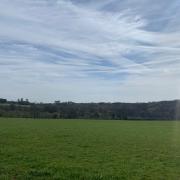
I sat down with two student ambassadors for the Holocaust educational trust to better understand their role in educating others about the horrors of the Holocaust and ensuring that the events are not repeated in today’s society. Emily Man and Lola Stirling, students at Hatch End High School became student ambassadors earlier this year.
I opened the discussion by asking how they came to be chosen for this role. Emily started passionately, “We became ambassadors by applying to be part of Lessons from Auschwitz through a 500 word piece on why the project was important to us. For me, I wrote about why the Holocaust is so important today, with the rise of the alt- right movement.”
“Our role as ambassadors is to pass on what we learn from a series of trips and seminars that we participated in on the project. We launch our own projects and educate people in the local community,” summarised Lola.
I asked the students how they felt to be chosen. I couldn’t imagine the mixed emotions that they must have felt. Understandably, both students expressed apprehension about the trip to a place of such negativity and sadness. Lola said, “It was honour to be chosen for this but at the same time I didn’t know what to expect from the visit to Auschwitz.”
Emily nodded, “It’s a rare opportunity and I was sad that other people couldn’t be involved because of its importance.”
I moved on to ask the ambassadors about the trip itself. “How did you document the trip?” I asked. Lola said that she took photographs whilst Emily sketched. “I felt that it was more respectful. Sketches forces you to think and look at a place.” She appeared to have been moved deeply by what she saw and learnt.
The students talked me through a few of the areas of the journey with them the most. Emily started, “Oswiecim Old town struck me the most. It was a picturesque town square, only an hour away from Auschwitz. It really put into perspective how any town could have been targeted.”
Lola agreed before concluding, “There are so many eye-opening things that I have been fortunate enough to experience. I don’t think that I can pick out one. However, hearing the survivors speak was incredibly powerful. We had the privilege of listening to survivor Susan Pollock many times. What these people had to endure was horrifying.”
I followed up their responses by asking if their views on how the Holocaust should be remembered had changed since taking part in the project.
“If anything, I have just realised how much more we need to talk about it and inequality in general. We need to have the guts to go out and talk about it.”
“Yes,” Lola added, “I realised the need to humanise the victims instead of looking at them as statistics or summaries. We have to remember that these are real people and this could happen to anybody.”
My final question to the girls was to ask them about their future plans to educate people in the community. “I’m going to talk to a congregation at a Synagogue in May,” said Emily. “We both hope to do some workshops with the younger years to educate the new generation and demonstrate its relevance today.”
Lola pointed out that the most important thing that she learnt from the trip was appreciation, “We take freedom for granted and we need to start using our voices for the better. I want to inspire others to take part in this project and do research on how they can spread awareness”
Emily agreed, ending the interview by stating that she was going to continue to read and educate herself on the Holocaust and modern day discrimination. In her words, “Without educating myself, how can I educate others?”


























